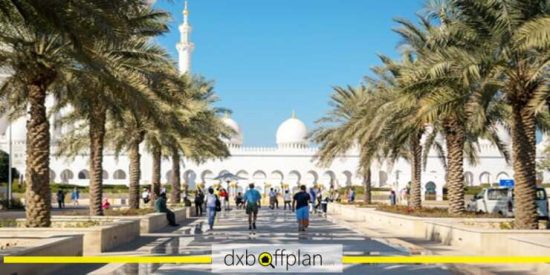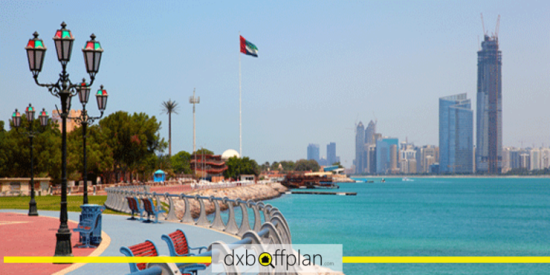Pros and Cons of Living in Abu Dhabi
Abu Dhabi, the vibrant capital of the United Arab Emirates, is renowned for its luxurious lifestyle, booming economy, and cultural diversity. However, like any major metropolis, it presents a unique set of advantages and challenges for its residents. In this article, we will explore the various facets of living in Abu Dhabi, providing a comprehensive overview of its benefits and drawbacks. Whether you are considering a move to this dynamic city for career opportunities, tax benefits, or a high standard of living, it’s essential to weigh these factors carefully to make an informed decision. Dive into our detailed analysis to discover what life in Abu Dhabi truly entails

Pros of Living in Abu Dhabi
Living in Abu Dhabi, the capital of the United Arab Emirates, can be an unforgettable experience full of new opportunities. The city shines with its modern infrastructure and multicultural environment, bringing numerous benefits to its residents:
- Premium real estate options: Running out of pristine and world-standard real estate buildings in Abu Dhabi is nearly impossible. Having the right amount of money, you can get any desired length and depth of real estate.
- High Security: One of the most prominent features of Abu Dhabi is its high level of security. Residents can go about their daily lives without worrying about crime.
- Growing Economy: Abu Dhabi’s dynamic and growing economy provides numerous job opportunities for professionals and entrepreneurs from around the world. It’s an ideal place for career growth and business development.
- Tax Exemption: One of the most attractive benefits of living in Abu Dhabi is the lack of income tax. This feature is especially appealing to expatriates and entrepreneurs who can retain their entire income.
- High Quality of Life: Although the cost of healthcare services in Abu Dhabi might somehow differ from what you are used to, the high quality of life and services in Abu Dhabi makes it a pleasant place to live for both families and singles. These excellent service include world-class amenities and education.
- Cultural Diversity: Abu Dhabi is home to people from various parts of the world, creating a diverse and welcoming community. This cultural mix offers residents opportunities for learning and new experiences.
- Language and Communication: Although Arabic is the official language, English is widely spoken in Abu Dhabi. Despite Arabic being the UAE’s official language, over 90% of the residents in the capital are also fluent in English. This linguistic diversity makes the city accommodating for both Arabic-speaking Muslims and non-Arabic speakers who know English.
- Entertainment and Tourist Attractions: There are so many places to visit in Abu Dhabi that it’s impossible to run out of entertainment as there are museums, parks, shopping centers, and beautiful beaches, providing memorable leisure and entertainment options for you and your loved ones.
These are just some of the advantages that can make Abu Dhabi an attractive place to live. However, like any location, it also comes with its own set of challenges.

Cons of Living in Abu Dhabi
Despite its many attractions and benefits, living in Abu Dhabi can present certain challenges that may influence the decision to move there:
- High Living Costs: One of the major disadvantages is the high cost of living. From rent to daily expenses, living in this city can be expensive, particularly for those with limited income. Buying property in Dubai and Abu Dhabi can also be challenging.
- Extremely Hot Weather: Abu Dhabi’s climate is extremely hot and dry, which can be uncomfortable for some people. The long summers with high temperatures can negatively impact health and comfort.
- Cultural and Social Restrictions: Despite its cultural diversity, Abu Dhabi still has cultural and social limitations that may be difficult for people from more open societies. Regulations concerning dress and public behavior can be restrictive.
- Traffic and Transportation: Traffic congestion and transportation issues can be another downside of living in Abu Dhabi. Despite a public transport system, heavy traffic and parking difficulties can be challenging.
- Strict Legal Restrictions: Abu Dhabi has strict laws that can be tough for those used to more liberal environments. This includes laws regarding social and personal matters.
- Limited Access to Healthcare Services: For expatriates, access to healthcare services can be limited and the costs can be very high.
These disadvantages, along with the benefits, need to be carefully weighed to make an informed decision about living in Abu Dhabi. The city offers numerous opportunities, but it’s important to consider all aspects and decide based on personal circumstances and priorities.

Living Conditions in Abu Dhabi
Abu Dhabi, with its modern infrastructure and multicultural environment, offers varied living conditions. Known for its economic growth, it has become a desirable destination for migration. The hot and dry climate, especially during the summers, is balanced by mild and pleasant winters, making it the best time to visit. High security, a dynamic economy, and tax exemptions are among the advantages, while Abu Dhabi living costs and cultural restrictions can be seen as challenges.

Final Words
The pros and cons of living in Abu Dhabi are numerous. On one hand, the city offers high security, extensive job opportunities, tax exemptions, and a high quality of life, making it a paradise for residents and expatriates. On the other hand, high living costs, hot and dry weather, cultural and social restrictions, and transportation challenges can make life in the city difficult. Ultimately, the decision to make Abu Dhabi your home depends on individual priorities and preferences. Those seeking new opportunities and the experience of living in a dynamic, international environment might find Abu Dhabi ideal, while those preferring more tranquility and lower costs might look elsewhere. Nevertheless, Abu Dhabi is a city that cannot be easily overlooked, promising a unique experience for its residents.
frequently asked questions
Living in Abu Dhabi offers numerous benefits, including high living standards, tax-free income, and a vibrant multicultural environment. The city boasts modern infrastructure, excellent healthcare, and world-class education facilities. Additionally, Abu Dhabi provides a safe and secure environment with low crime rates, making it an attractive destination for families and expatriates. The city also offers a variety of recreational activities, including beautiful beaches, cultural attractions, and shopping malls.
Despite its many benefits, living in Abu Dhabi has its challenges. The cost of living can be high, particularly in terms of housing and education. The climate is another consideration, with extremely hot summers that can be difficult to endure. Traffic congestion and the high cost of owning a car are also potential downsides. Furthermore, while English is widely spoken, the official language is Arabic, which may pose a language barrier for some newcomers.
Abu Dhabi has a thriving job market, particularly in sectors like oil and gas, finance, real estate, healthcare, and education. The city attracts skilled professionals from around the world, offering competitive salaries and benefits. However, the job market can be competitive, and securing employment may require specific qualifications and experience. Networking and understanding local hiring practices can significantly enhance job prospects.
The cost of living in Abu Dhabi varies depending on lifestyle and personal preferences. Housing is one of the biggest expenses, with rental prices varying widely based on location and property type. Groceries and dining out can also be costly, though there are options for more affordable living. Education, especially international schools, can be expensive, but the quality of education is generally high. While some goods and services may be more expensive than in other countries, the absence of income tax can help offset these costs.







